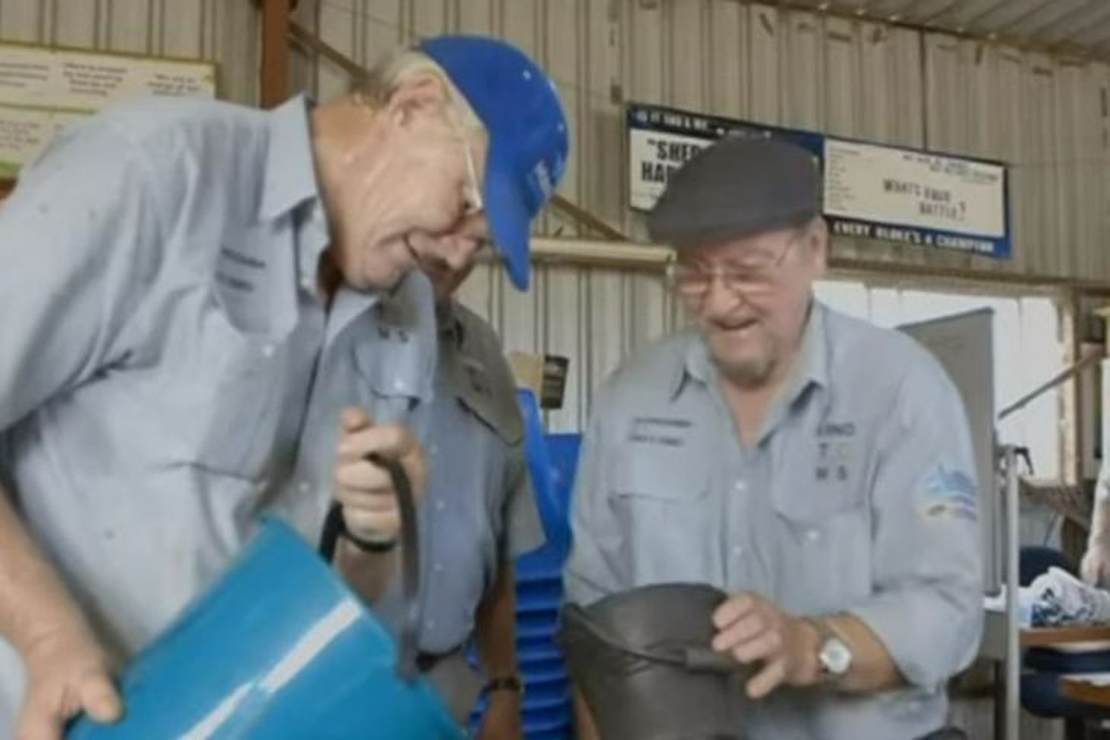
A few months back, my colleague Brandon Morse wrote about the “Boy’s Club” mentality among men, and why this is a good thing:
For all of human history, men would gather together and walk into the most dangerous situations where his greatest comfort wasn’t his sword or his gun, but the trust that when it was time to get down to business he could trust the man next to him to have his back without question. He trusted his fellow tribesman’s competency and bravery, and bonds would naturally form that made this trust and competency even deeper.
Sadly, there are fewer and fewer spaces for “just the boys.” Just look at The Boys Club of America to see how this has been eroded by pressure, litigation, mismanagement, and ultimately disinterest. The lack of this exclusively male connection and bonding opportunities has had an adverse effect on men of all ages. Unlike women, who are wired to be relational and seek out opportunities that allow for that, for men, this is not their gravitational pull. So, the concept of a Men’s Shed, where men of all ages can gather together around working with their hands and sharing their lives, their feelings, and their concerns seems to have taken off, and may well be saving lives.
Hence, it is the subject of this week’s Feel-Good Friday.
Men’s Shed is an international phenomenon with over 2,000 worldwide in 12 different countries. It was formed by and for retired men but is open to all. It’s a place for men to fight the isolation and depression that can come with retirement, unemployment, or loss: whether it be a wife, a family member, health, or a friend. Many of the clubs have a range of ages, and in our era of fatherlessness, it affords a way for younger men to receive hands-on mentoring and connection with older men.
The Sheds are equipped with tools, materials, and machinery that allow the men to work with their hands, pursue their maker interests, share their skills at making, or learn something new.
The largest contingent of these clubs is in Australia, but according to the U.S. Men’s Shed Association website, there are about 10 or so across the United States.
Their website stresses that the key to the popularity of Men’s Shed is expressed in their motto:
“Men don’t talk face to face, we talk SHOULDER TO SHOULDER.”
In this video from Sky News Australia, one of the founders of Castle Hill Men’s Shed explains “why” Shoulder to Shoulder works for men in unique ways.
READ RELATED: Another Business Closes up Shop in San Francisco, Cites Intolerable Crime Levels
[embedded content]
In the wake of the pandemic, these Men’s Sheds are experiencing a fresh resurgence. For Men’s Health Month in June, one Men’s Shed in Australia opened a new facility and reinforced why these gathering places are so important.
The new Linton Men’s Shed is officially open to the public.
Founding president Michael Hough said the shed was ‘crucial’ to men’s health in the region.
“If you want to find the connection between men’s health and [seeking medical care] then it’s the Men’s Shed that produces that avenue because blokes won’t do a lot of that stuff,” he said.
“But you’re going down here and in an atmosphere where you can joke about your prostate exam or your testicular cancer, as blokes can do that in a different way, blokes’ health improves because you’re talking.”
Australia and the U.K. have government lotteries and grants that assist men in starting new Men’s Sheds. In the United States, the U.S. Men’s Shed Association offers options to be sponsored or to independently start a Men’s Shed in their community. As I wrote above, men connect differently than women, and at the risk of overgeneralization, tend to compartmentalize their stresses and concerns, rather than share them. In a society where the role of men is constantly under attack, it has taken its toll on the state of men’s mental and emotional health.
According to an infographic on the Mental Health America website, social isolation, substance abuse, unemployment, military-related trauma, genetic predisposition, and other mood disorders increase the risk for suicide, which is the seventh leading cause of death among men. Men are four times more likely than women to die by suicide.
These sobering statistics emphasize the urgency of promoting and supporting networks like Men’s Shed or building similar community spaces where men can gather together and build each other up, rather than be torn down.
As conservatives fight the fight against a woke culture that wants to marginalize, reclassify, and eliminate men, a Men’s Shed seems s perfect antidote against that. Creative and active spaces that allow men to flourish, as well as maintain and establish a path of purpose are what the world desperately needs.
Source:






